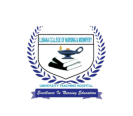Pre-service Diplomas
Registered Nurse-Midwifery Program
Diploma in Midwifery is a specialised programme designed for grade 12 school leavers and Certified Midwives who have a passion to help women, newborns, families and community. Lusaka College of Nursing commenced training Diploma in Nurse Midwifery, a three and half (31/2) years programme in 2012 and transitioned to a three (3) years Diploma in Midwifery in 2024. The programme trains students to be part of a professional discipline that involves caring for a woman during pregnancy, labour postpartum, and her family and is derived from midwifery as a science.


The aim of the Programme is train a midwife who will be self-directed, analytical, knowledgeable, skillful and responsive to changing obstetrics needs, emerging diseases and contribute towards improving the quality of midwifery care being provided to a pregnant woman, the baby, their family and community. The courses covered in three years include: Sociology in Nursing, Psychology in Nursing, Professional Practice, Nutrition, Microbiology, Health Communication in Nursing, Fundamentals of Nursing, Anatomy and Physiology, Public Health Nursing, Medical-Surgical Nursing, Pharmacology, Psychiatry and Mental Health Nursing, Paediatric and Child Health Nursing, Introduction to Research in Nursing, Obstetric and midwifery care, Gynaecology and Gynaecological Care, Foundation of midwifery, Leadership, Management and Governance, Integrated Sexual and Reproductive Health Rights and Neonatology and Neonatal Care
The Programme includes clinical experience which takes two thirds (2/3) of the period of training to help student learn clinical skills and acquire competences to practice as a midwife. The practical experiences includes visiting industries, health centres, hospitals and rural community experience. Workshops are held for specialised training in high impact procedures that are lifesaving to prepare students to provide high quality midwifery care to help reduce maternal and newborn morbidity and mortality.

Registered Nurse-Midwifery Team

Ms.Naomi Bweupe - Principal Lecturer Diploma in Midwifery programme
MSc Mid.WH, BSc NSG, RM, RN

Ms. Fennister M. Nasilele - Lecture
BSc NSG, RM, RN

Ms. Elizabeth M. Mwila - Lecturer
BSc NSG, RN

Ms. Harriet Choongo - Lecturer
BSc NSG, RM, RN

Ms. Charlotte S. Kafuti - Clinical Instructor
RM, RN

Mr. Peter Musongole - Lecturer
BSC NGS, RM, RN

Ms. Sheila M. Mutondo - Lecturer
MPH, BSc NSG, RM, RN

Mr. Beston Mbulo - Lecturer
BSC NGS, RMHN

Ms. Ireen N. Banda - Lecturer
BSC NGS, RM, RN

Constance B Ntambo - Lecturer
BSc NSG, RM, RN

Registered Nursing Program
This is the oldest program at the College, initially established in 1968. It was later reopened in 2020 and is open to school leavers with five ‘O’ Level credits or better. The program aims to train and graduate nurses who are self-directed, analytical, knowledgeable, skillful, and responsive to challenging situations and emerging diseases, enabling them to contribute to improving healthcare quality in Zambia. While the curriculum primarily focuses on medical-surgical nursing, students also receive specialty training in Ophthalmology, Ear, Nose, and Throat (ENT), Oncology, Critical Care Nursing in both Theatre and Intensive Care Unit (ICU), Psychiatric Nursing, Paediatrics Nursing, and Primary Health Care from a rural perspective. Additionally, students undergo intensive training in Leadership, Management, and Governance, equipping them with the knowledge and skills to plan, manage, advocate, and mobilize resources for effective healthcare delivery in both health facilities and communities.
Public Health Nursing Program
Public Health Nursing is a specialized programme aimed at training Public Health Nurses to prevent disease, promote and protect community health, and improve health outcomes for individuals, families, and populations. The Diploma in Public Health Nursing is a three-year programme designed for pre-service candidates who have completed grade twelve and have a passion for community health. Entry qualifications include five O-levels, with English, Science, and Mathematics as compulsory subjects, along with any other two. The curriculum covers a wide range of topics, including Medicine and Medical Nursing, Surgery and Surgical Nursing, Public Health Nursing, Research and Epidemiology, Community Engagement, Occupational Health, Integrated Reproductive Health, Paediatrics, and Mental Health, along with other foundational nursing courses that strengthen students’ expertise. A significant portion of the programme is dedicated to clinical training, allowing students to gain hands-on experience in real-world healthcare settings. Practical workshops and field training include Border and Airport Health, Rural and Urban Health Settings, Fire Safety, and First Aid, equipping students with essential skills for their roles as Public Health Nurses.



